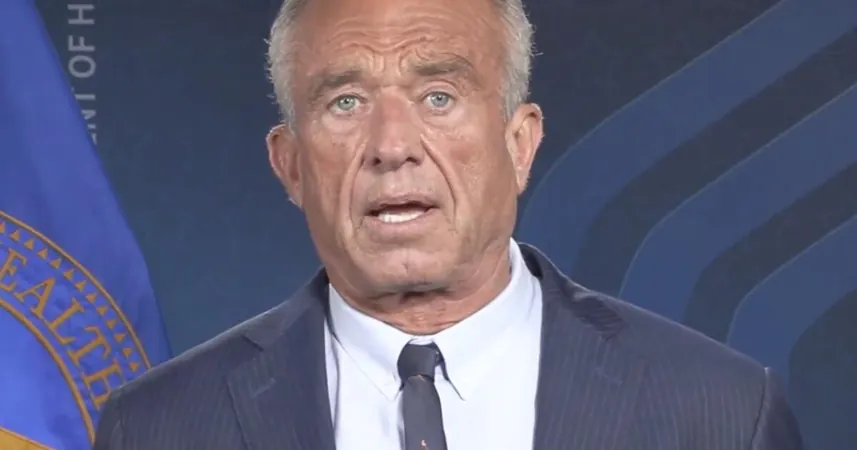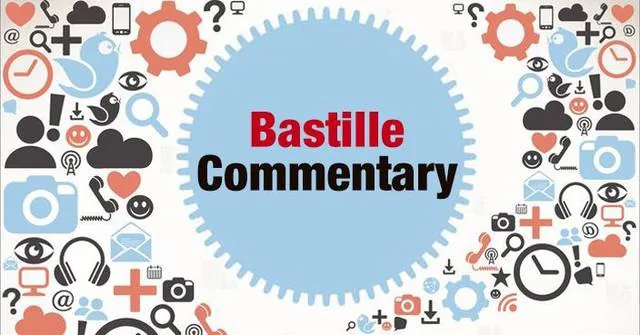
RFK Jr. Dismisses mRNA Vaccine Research: A Reckless Error?
2025-08-12
Author: Ling
A Bold Move or a Dangerous Misstep?
When Health and Human Services Secretary Robert F. Kennedy Jr. announced the cancellation of $500 million in federal grants for mRNA vaccine research, at first glance, the data he cited seemed compelling.
Kennedy claimed that after reviewing over 400 research papers, the Department of Health and Human Services concluded that mRNA technology presents more risks than benefits, especially for respiratory viruses like COVID-19 and the flu. His assertion was shared in a video on social media, proclaiming a commitment to science.
Digging Deeper: The Data Doesn't Add Up
However, a closer examination reveals a shocking misrepresentation. Out of the 400 studies referenced, only about 40 were relevant to vaccines. The majority focused on the effects of COVID-19 infections rather than the vaccines themselves.
Additionally, many studies involved laboratory mice and utilized injection methods not applicable to humans. This raises serious questions about the validity of Kennedy's claims.
Missing the Mark: Key Studies Ignored
Crucial research affirming the safety and efficacy of mRNA vaccines was glaringly absent from Kennedy's data package. For instance, a comprehensive study involving over a million recipients of the recent mRNA COVID booster found no statistically significant risk linked to the vaccine.
This included data on myocarditis, often cited as a significant concern. The study showed that while myocarditis was more frequently observed in young men after vaccination, it was largely mild and resolved quickly.
Lives Saved: A Crucial Perspective
Furthermore, research indicating that mRNA vaccines saved an estimated 4 million lives since the rollout began in 2020 was notably overlooked. Previous estimates also suggested that millions of hospitalizations and deaths were prevented.
Experts Respond: A Dangerous Decision
The reception among health experts to Kennedy's decision is overwhelmingly negative. Infectious disease specialist Michael Osterholm labeled it the most dangerous public health decision he has seen in 50 years.
Experts argue that if Kennedy truly believes the science surrounding mRNA vaccines is insufficient, the logical response should be to advocate for more research, not less.
The Potential of mRNA Technology
To understand the impact of this cancellation, it’s essential to recognize the revolutionary potential of mRNA technology. By instructing the body to recognize and combat pathogens, these vaccines can rapidly adapt to emerging threats like COVID, flu, HIV, and even cancer.
The U.S. government invested $2.5 billion into the development of mRNA COVID vaccines, a push that was part of a larger effort to create effective tools against pandemics.
Misconceptions and Misinformation
Kennedy's video and statements have been criticized as rife with inaccuracies. He suggested that mRNA vaccines do not perform well against upper respiratory infections, countered by data showing significantly lower case and death rates among the vaccinated.
Claims about vaccines promoting mutations are unfounded, according to experts who assert that widespread vaccination actually reduces new variants.
The Disturbing Origins of Kennedy's Data
Interestingly, the compilation of studies Kennedy relied on wasn't produced by government scientists but authored by individuals known for anti-vaccine advocacy. This raises red flags about the credibility of the claims being made.
The Broader Impact of Canceled Research
Kennedy's cancellation may stymie scientific progress for years. It undermines the very foundation of U.S. public health policy and could cede vital advancements in medical technology to other nations.
As skepticism around mRNA vaccines grows, in part due to influential figures like Kennedy, it becomes imperative for responsible leaders to champion scientific truths rather than propagate misinformation.
Conclusion: The Stakes are High
The mRNA platform has the potential to revolutionize healthcare globally. Yet, if public sentiment continues to be swayed by unfounded doubts, the U.S. may fall behind in harnessing this groundbreaking technology.


 Brasil (PT)
Brasil (PT)
 Canada (EN)
Canada (EN)
 Chile (ES)
Chile (ES)
 Česko (CS)
Česko (CS)
 대한민국 (KO)
대한민국 (KO)
 España (ES)
España (ES)
 France (FR)
France (FR)
 Hong Kong (EN)
Hong Kong (EN)
 Italia (IT)
Italia (IT)
 日本 (JA)
日本 (JA)
 Magyarország (HU)
Magyarország (HU)
 Norge (NO)
Norge (NO)
 Polska (PL)
Polska (PL)
 Schweiz (DE)
Schweiz (DE)
 Singapore (EN)
Singapore (EN)
 Sverige (SV)
Sverige (SV)
 Suomi (FI)
Suomi (FI)
 Türkiye (TR)
Türkiye (TR)
 الإمارات العربية المتحدة (AR)
الإمارات العربية المتحدة (AR)